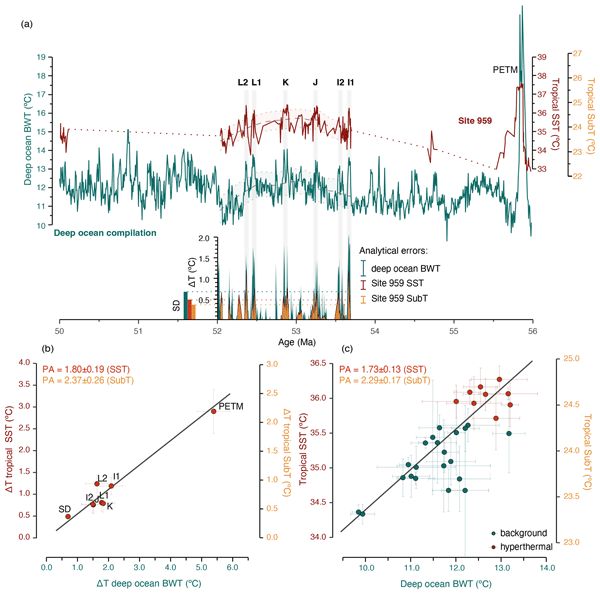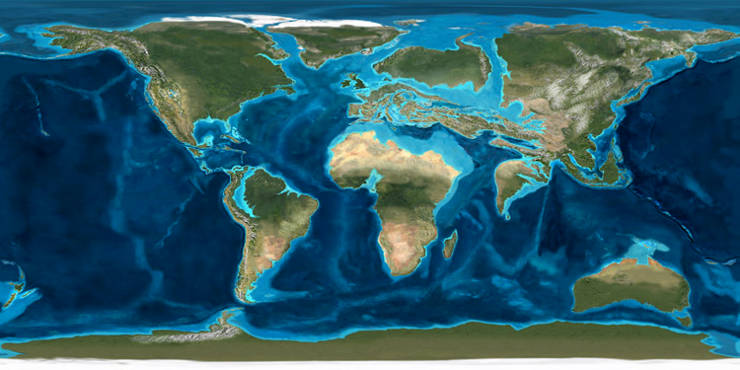European Geosciences Union: Polar amplification of orbital-scale climate variability in the early Eocene greenhouse world

 cp.copernicus.org
cp.copernicus.org

 en.wikipedia.org
en.wikipedia.org
Abstract
Climate variability is typically amplified towards polar regions. The underlying causes, notably albedo and humidity changes, are challenging to accurately quantify with observations or models, thus hampering projections of future polar amplification. Polar amplification reconstructions from the ice-free early Eocene (∼56–48 Ma) can exclude ice albedo effects, but the required tropical temperature records for resolving timescales shorter than multi-million years are lacking. Here, we reconstruct early Eocene tropical sea surface temperature variability by presenting an up to ∼4 kyr resolution biomarker-based temperature record from Ocean Drilling Program (ODP) Site 959, located in the tropical Atlantic Ocean. This record shows warming across multiple orbitally paced carbon cycle perturbations, coeval with high-latitude-derived deep-ocean bottom waters, showing that these events represent transient global warming events (hyperthermals). This implies that orbital forcing caused global temperature variability through carbon cycle feedbacks. Importantly, deep-ocean temperature variability was amplified by a factor of 1.7–2.3 compared to the tropical surface ocean, corroborating available long-term estimates. This implies that fast atmospheric feedback processes controlled meridional temperature gradients on multi-million year, as well as orbital, timescales during the early Eocene.
Our combined records have several other implications. First, our amplification factor is somewhat larger than the same metric in fully coupled simulations of the early Eocene (1.1–1.3), suggesting that models slightly underestimate the non-ice-related – notably hydrological – feedbacks that cause polar amplification of climate change. Second, even outside the hyperthermals, we find synchronous eccentricity-forced temperature variability in the tropics and deep ocean that represent global mean sea surface temperature variability of up to 0.7 °C, which requires significant variability in atmospheric pCO2. We hypothesize that the responsible carbon cycle feedbacks that are independent of ice, snow, and frost-related processes might play an important role in Phanerozoic orbital-scale climate variability throughout geological time, including Pleistocene glacial–interglacial climate variability.
Polar amplification of orbital-scale climate variability in the early Eocene greenhouse world
Abstract. Climate variability is typically amplified towards polar regions. The underlying causes, notably albedo and humidity changes, are challenging to accurately quantify with observations or models, thus hampering projections of future polar amplification. Polar amplification...

